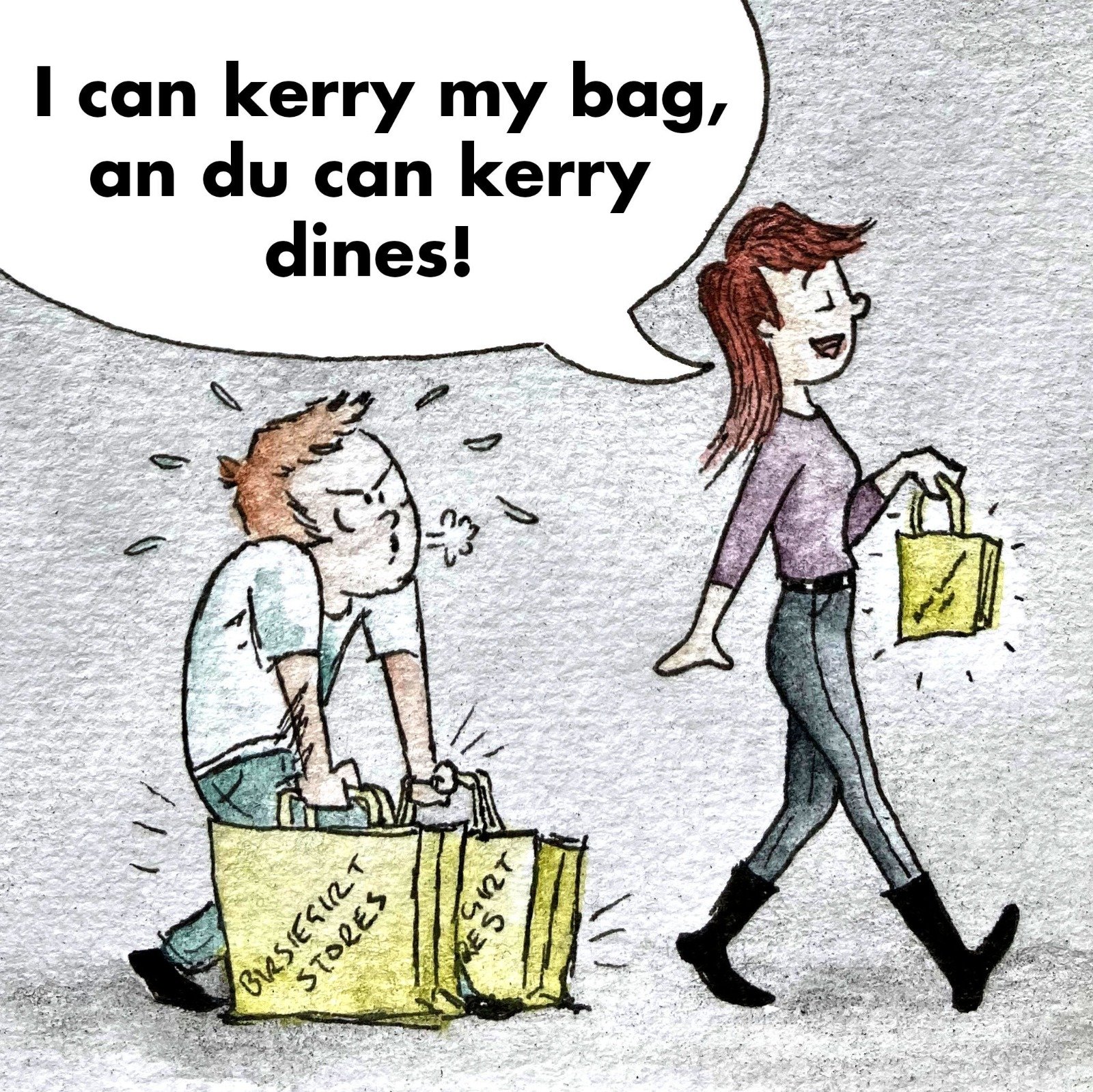Inflected possessives
The possessive pronoun expresses ownership. In Standard English there is only one form per person, no matter how many the owned items are:
– You carry your bag and I'll carry mine.
– You clean your boots and I'll clean mine.
– He can carry his bag and you can carry yours.
– He can dry his boots and you can dry yours.
In both cases above the first example refers to only one item and the second refers to two items, but the possessive pronoun (mine, yours) stays the same.
However, in some varieties of Shaetlan, the possessive pronoun is inflected for the plural:
– Du can kerry dy bag an A’ll kerry mine.
– Du can clean dy bøts and A’ll clean mines.
– He can kerry his bag an du can kerry dine.
– He can dry his bøts an du can dry dines.
When the owned items are more than one, the 1st and 2nd sg possessive have to be in the plural form (all others end in -s in the base form: his/hers/(h)its/wirs/yirs/dirs. So they can’t change meaningfully). This is a genuine plural form. Something like *Du can kerry dy bag an A’ll kerry mines would sound wrong in these varieties. This is the same as in the Scandinavian languages, where the possessive has to be in the plural form if it refers to more than one item:
– Du kan bära din väska så bär jag min.
– Du kan torka dina stövlar så torkar jag mina.
This was documented already in 1894 (Ross 1893-94: 115) and is inherited from Old Norse, where the possessive had to match the noun(s) they referred to. This also used to be the case in Old English, but that was lost already in Middle English. To “correct” the Shaetlan plural possessive forms would be misguided: this is a very old grammatical distinction in Shaetlan that has been hiding in plain sight.
The Scots form mines refers to singular items: –Wi Jack's Bonnie face (sae bonnie!) hingin ower mines... [OED, sv]. It has a different formation history from the Shaetlan plural possessive forms and should not be confused with them. The Scots form is neither new, nor slang, nor sloppy speech and is attested since 1661 at the latest.
Reference:
Ross, David. 1893-4. Place-names and dialect of Shetland. Proceedings of the Philosophical Society of Glasgow, 108-118. Glasgow: John Smith & Son.
Picture: Julie Dennison

